11 cozy kids' reading corners that will spark your child's imagination
These kids' reading corners strike the balance between playful design and a practical space

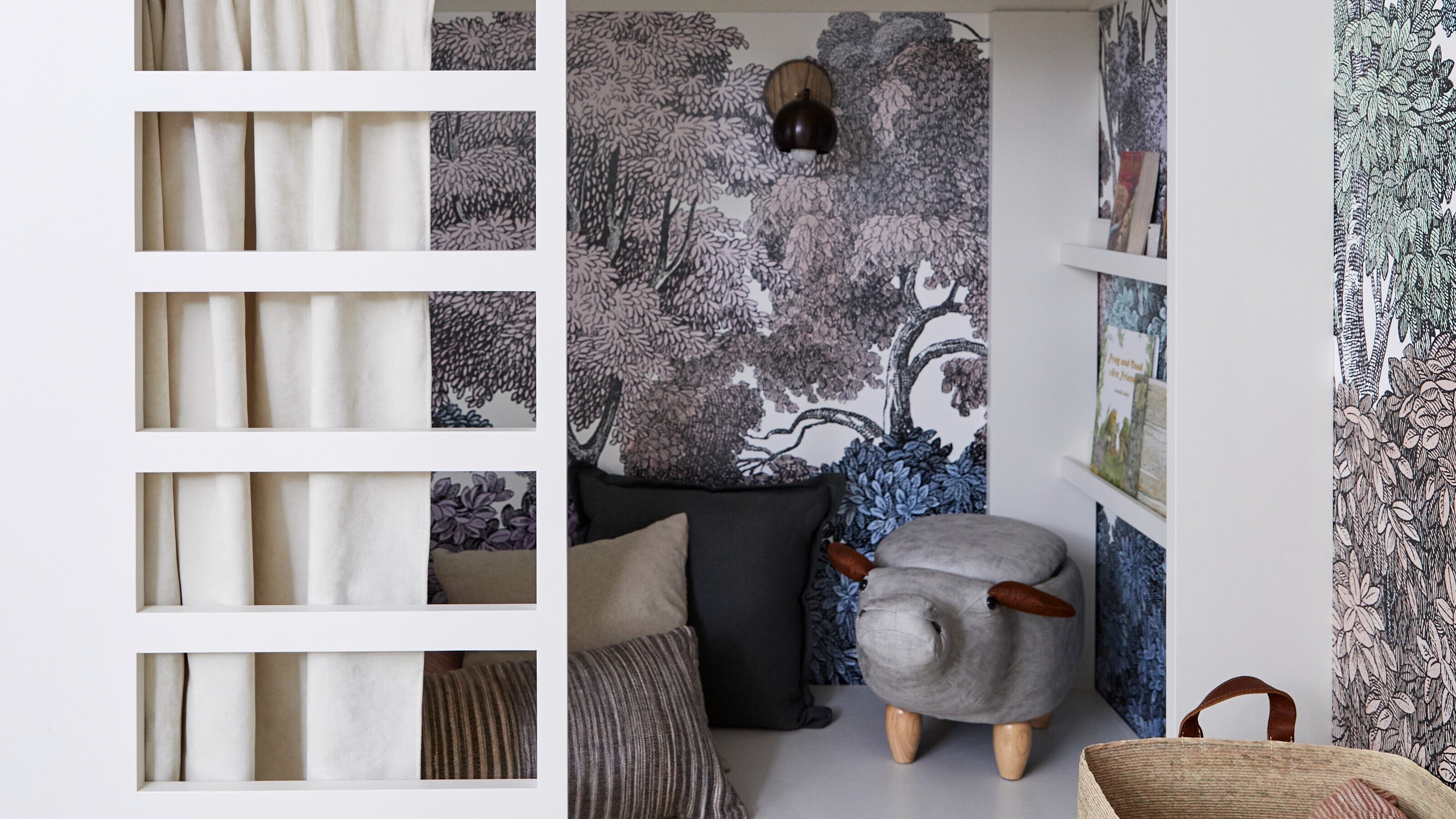
The Livingetc newsletters are your inside source for what’s shaping interiors now - and what’s next. Discover trend forecasts, smart style ideas, and curated shopping inspiration that brings design to life. Subscribe today and stay ahead of the curve.
You are now subscribed
Your newsletter sign-up was successful
Playful and whimsical, kids' reading corners are areas of the home where your child's imagination and creative spark can really fly. By designing a designated space in the home, your child will benefit from that extra bit of privacy to tuck into their favorite read, it will encourage budding book worms to discover a world of literature, all the while helping your child associate reading with relaxation and sleep.
'Kids like having a special place to retreat to,' says Jessica Mintz of Los Angeles interior design house, JMI. 'So get creative with your design.' A kids' reading nook can be as big or as small as you need or want it to be too, and size is no limitation. If it's a cupboard under the stairs or a meager corner of a room, think outside of the box to transform the space into an exciting escape for your child.
However you want to go about designing a special space for your little one, here are some inspiring playroom ideas that might help you plan your child's very own book nook.
How to design a kids' reading corner
Get your child involved in the designing process and let them feedback on what they like and want from a space, encourages designer Claudia Ludwig. 'When we design kids’ bedrooms we make a point of understanding not just the parents, but also the child’s dreams and ideas for the room.' Do they want a cozy corner? Or is it about creating a sense of magic in their playroom with a loose theme?
Avoid going too heavily themed however, ensuring that it's a space that will grow with them in time, and avoid any gender stereotypes while picking colors. Don't feel limited if all you have is a small corner to play with. Any space can be beautifully designed and tailored to your child to give them their own private retreat where they can get lost in a good read.
'Flexible storage that grows with the children, imaginative design that will age well as they grow, and a thoughtful balance of encouraging play and rest are the three big challenges with design for kids,' says Lane McNab. 'Being as thoughtful with kid room design as you are with the rest of the house has a big payoff.'
1. Keep it cozy with soft furnishings
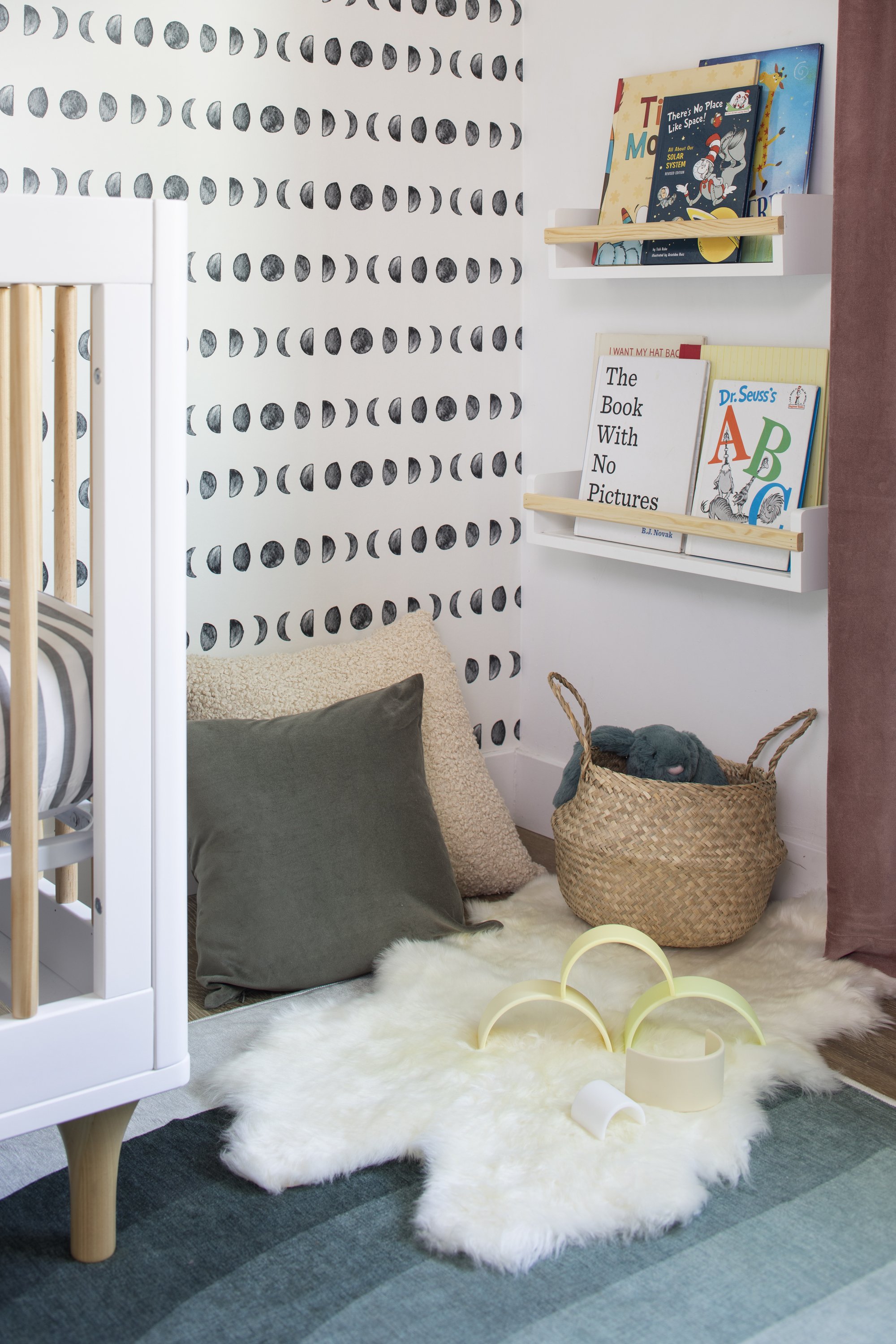
By adding interest to an unloved and unused corner of your child's bedroom, you can transform even the smallest of spaces into a book nook where your little one will feel encouraged to pluck their favorite storybook from the shelf. But added soft furnishings will really lure them to the space and help create that zoned effect.
The Livingetc newsletters are your inside source for what’s shaping interiors now - and what’s next. Discover trend forecasts, smart style ideas, and curated shopping inspiration that brings design to life. Subscribe today and stay ahead of the curve.
'Add pillows and something soft to curl up on,' says Jessica Mintz of Jessica Mintz Interiors, who designed this cozy corner, opting for a sheep skin rug with a long pile for extra softness, a pair of cushions, as well as a basket for blanket storage.
2. Make a built in book nook
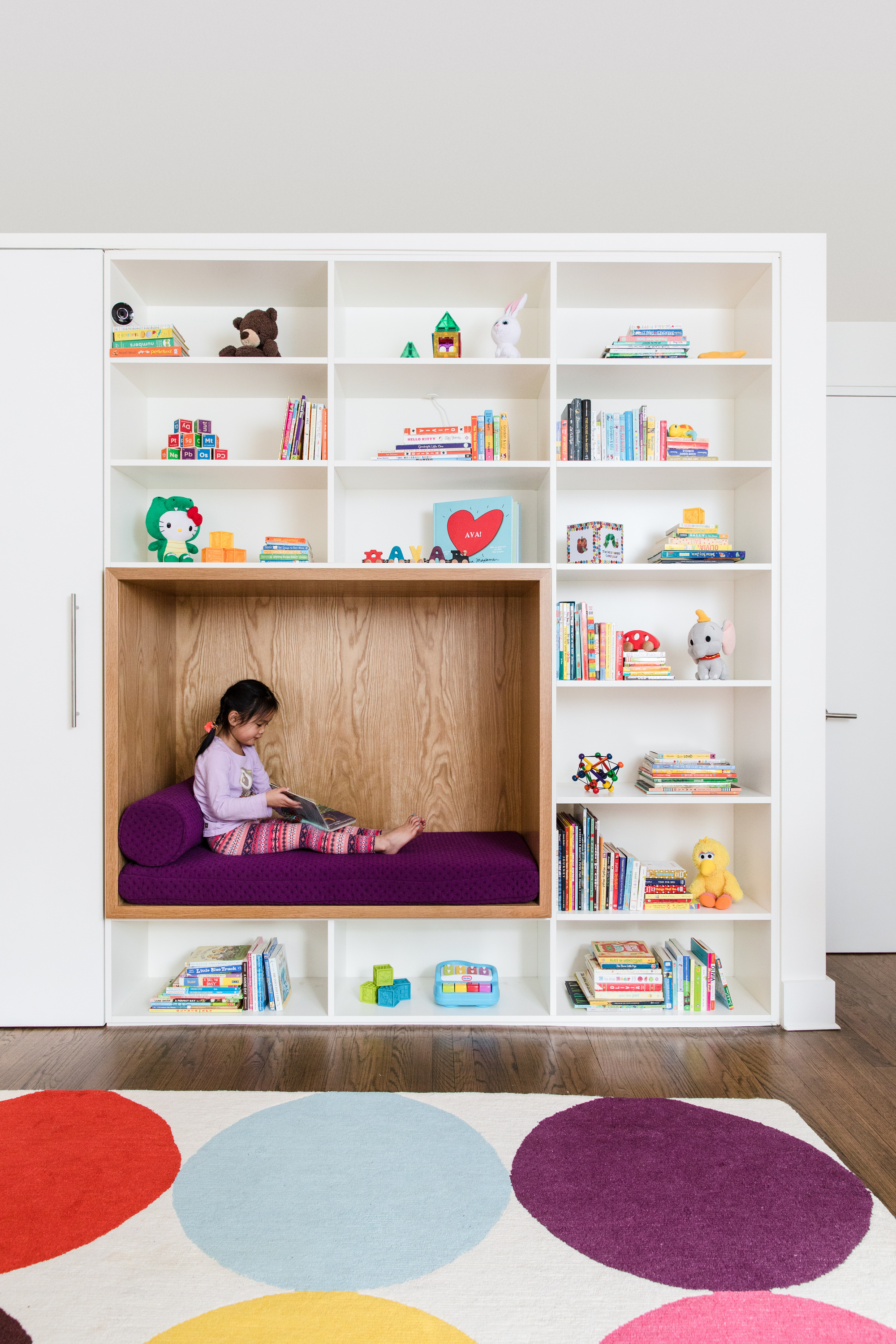
This sweet little reading nook from Sonya Lee Architect makes for a smart, self-contained space carved out of a bookcase that provides smart playroom storage solutions. The set-up also emphasizes the connection between relaxation and reading, ingraining this association in your child from a young age.
'At Tennis House, we designed a full height bookshelf with a reading nook in the kid's bedroom,' explains Sonya. 'Storage is always a necessity in New York City and offering the flexibility of having many options for their many growing collection of rocks, artwork and books.
'A playful way to integrate a reading nook into this bookshelf encourages the kids to engage with all their prized collections while being a cozy place to spend their day.'
3. Create a cubby hole under the stairs
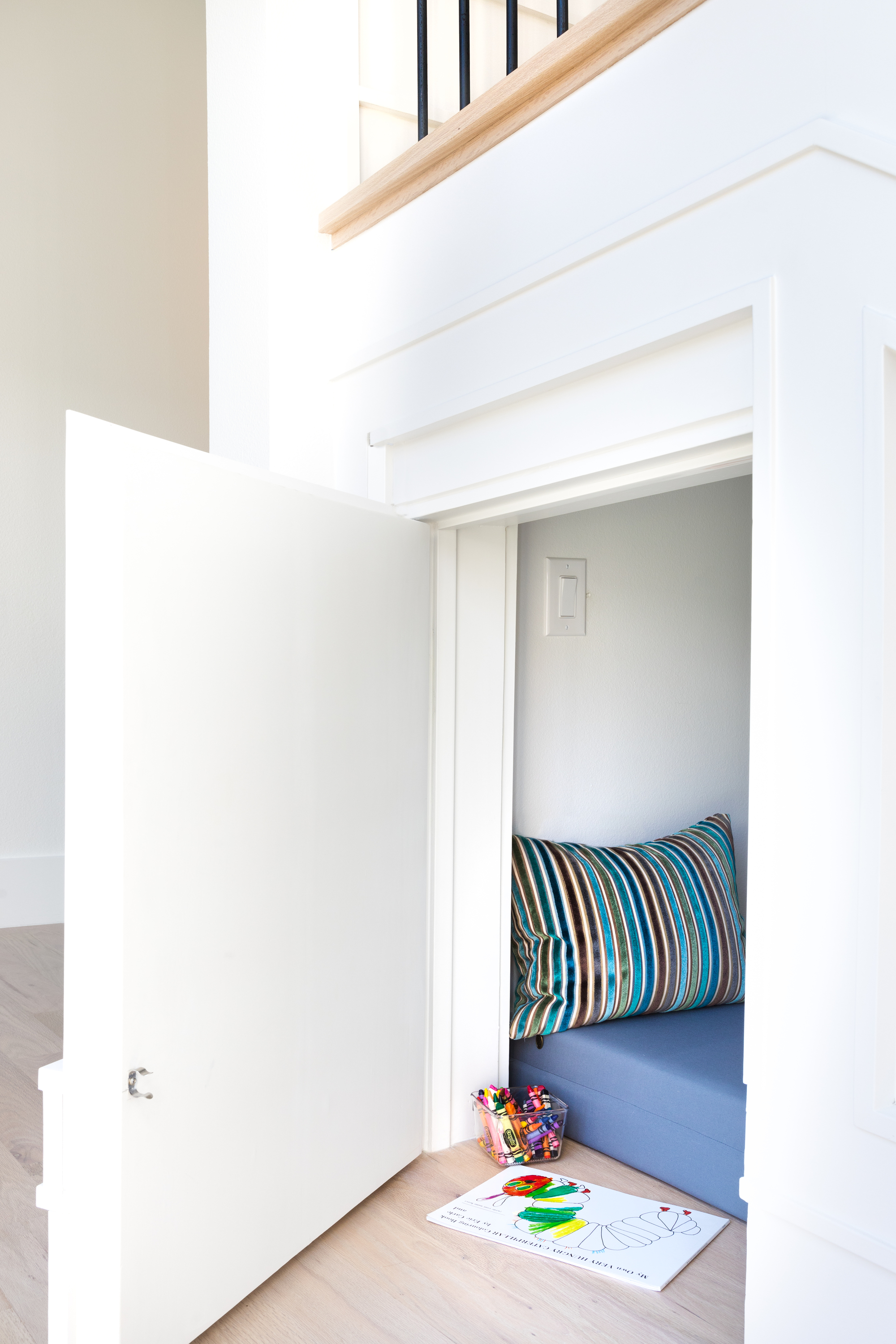
For an extra special spot that gives your child a real feeling of privacy, convert an unused cupboard under the stairs into their private book nook.
In this example from Maestri Studio, the Dallas-based interior design studio, the under-the-stairs storage solution means you can tidy the space away and gives your child their own secret door. Add fairy lights and some cushions to give the cupboard some extra magic.
4. Think about shelf height to actively encourage reading
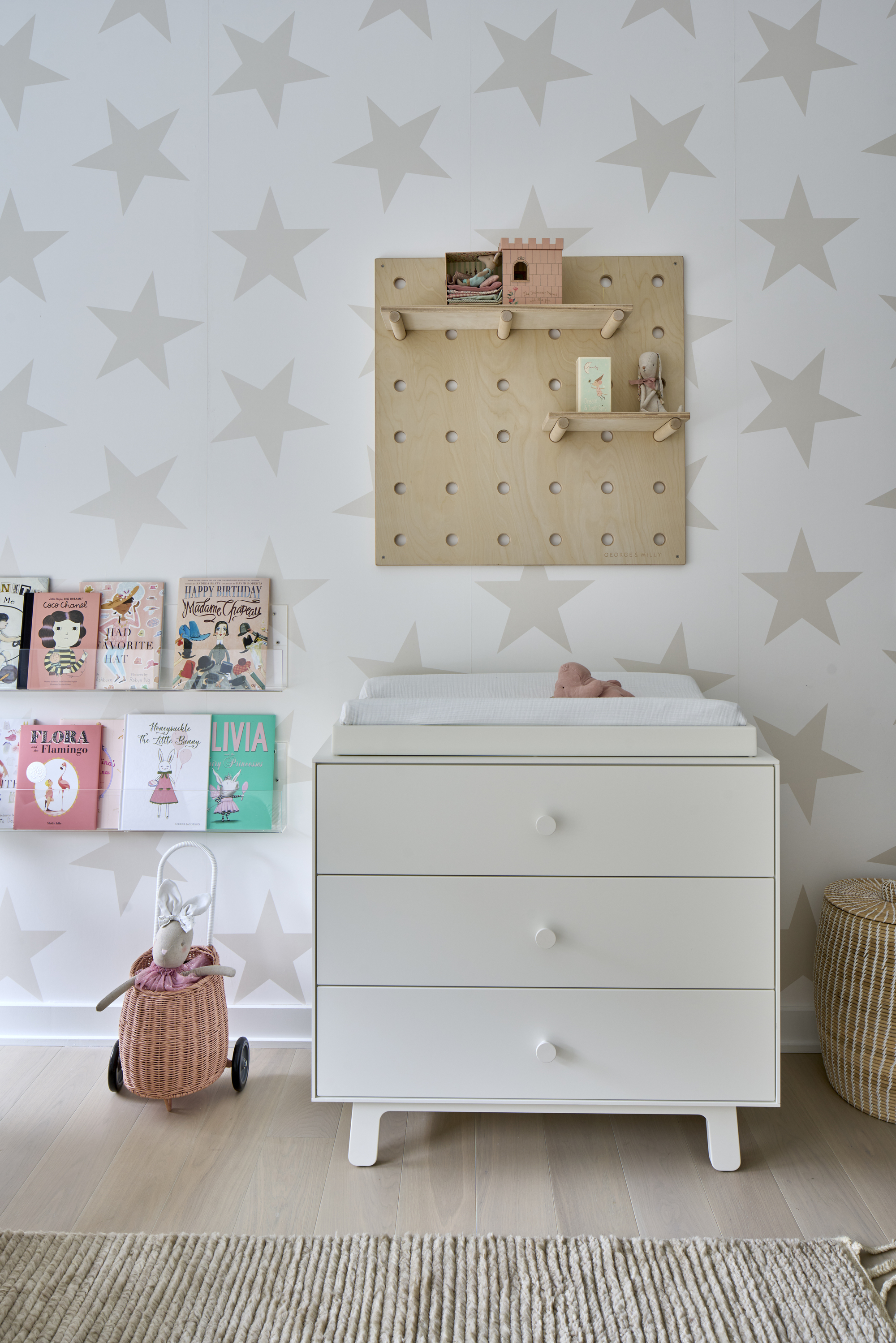
Think about book placement and shelf height when designing your child's book nook. You don't want a bookshelf with shelves so high up that your child needs a ladder to reach them so carefully consider these shelving ideas. 'Put books at their level so they are able to easily access them,' advises Jessica.
It's not just about height either. 'Front facing shelves will draw them to books because they will be able to see the covers. and don't add too many books so that the space gets easily messy or overwhelming. Place a few special toys nearby to keep them company and encourage them to read for longer.' This room was designed by Sissy + Marley Interior Design. 'A fully organized, functional and chic nursery was super important to us,' says Chelsea Reale, co-founder of SISSY + MARLEY Interiors.
5. Add curtains to a bottom bunk
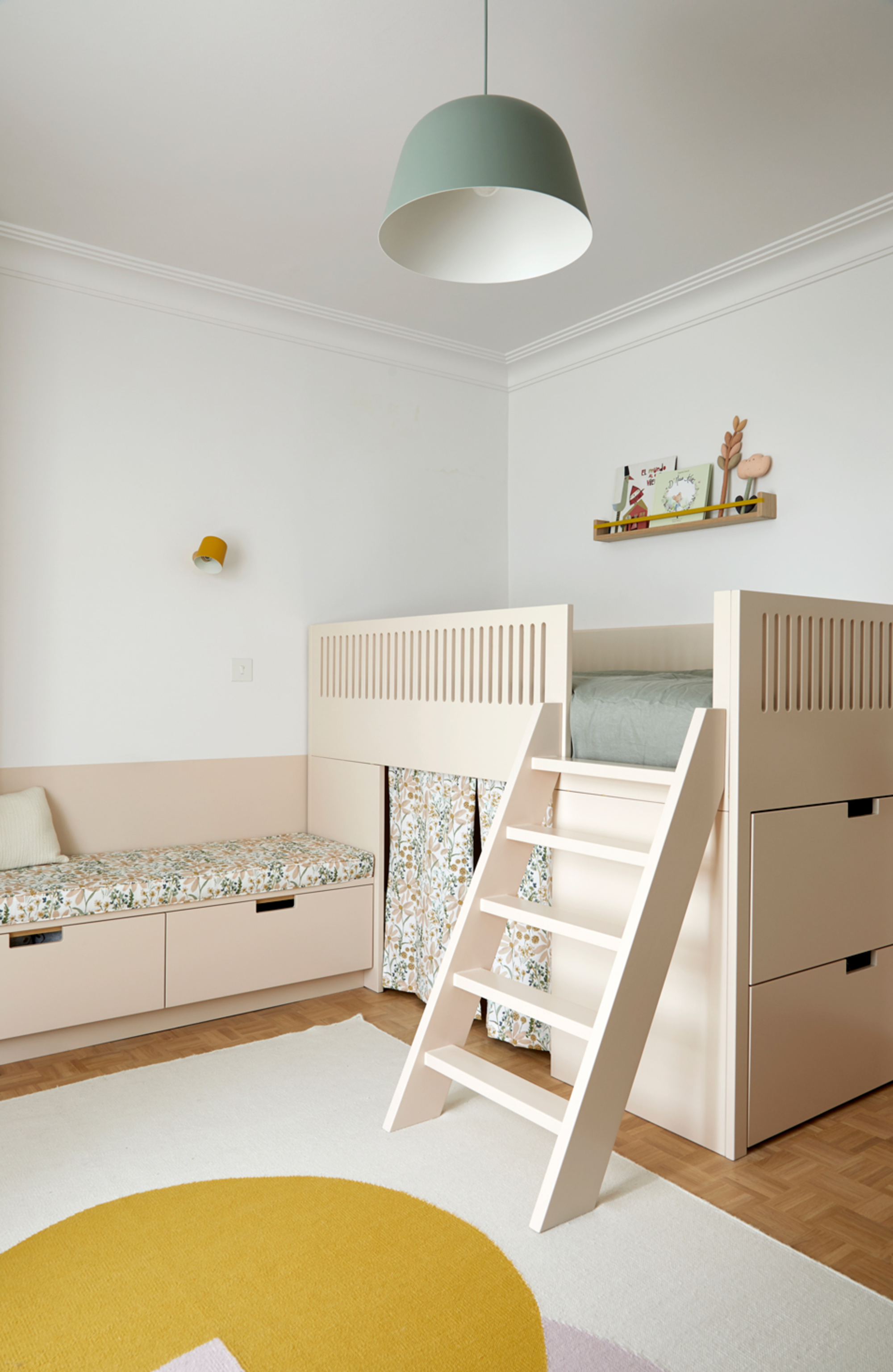
A bunk bed is an exciting piece of furniture when you're a child, with a ladder to the top bunk bringing a playground climbing frame feel to a child's bedroom. This design by Indie and Co also includes adorable curtains to the bottom bunk. Accessorize this secret space by adding a reading lamp and some soft furnishings. The designers have used the same fabric on the seat as the curtains to tie the scheme together.
6. Put up a cozy tent
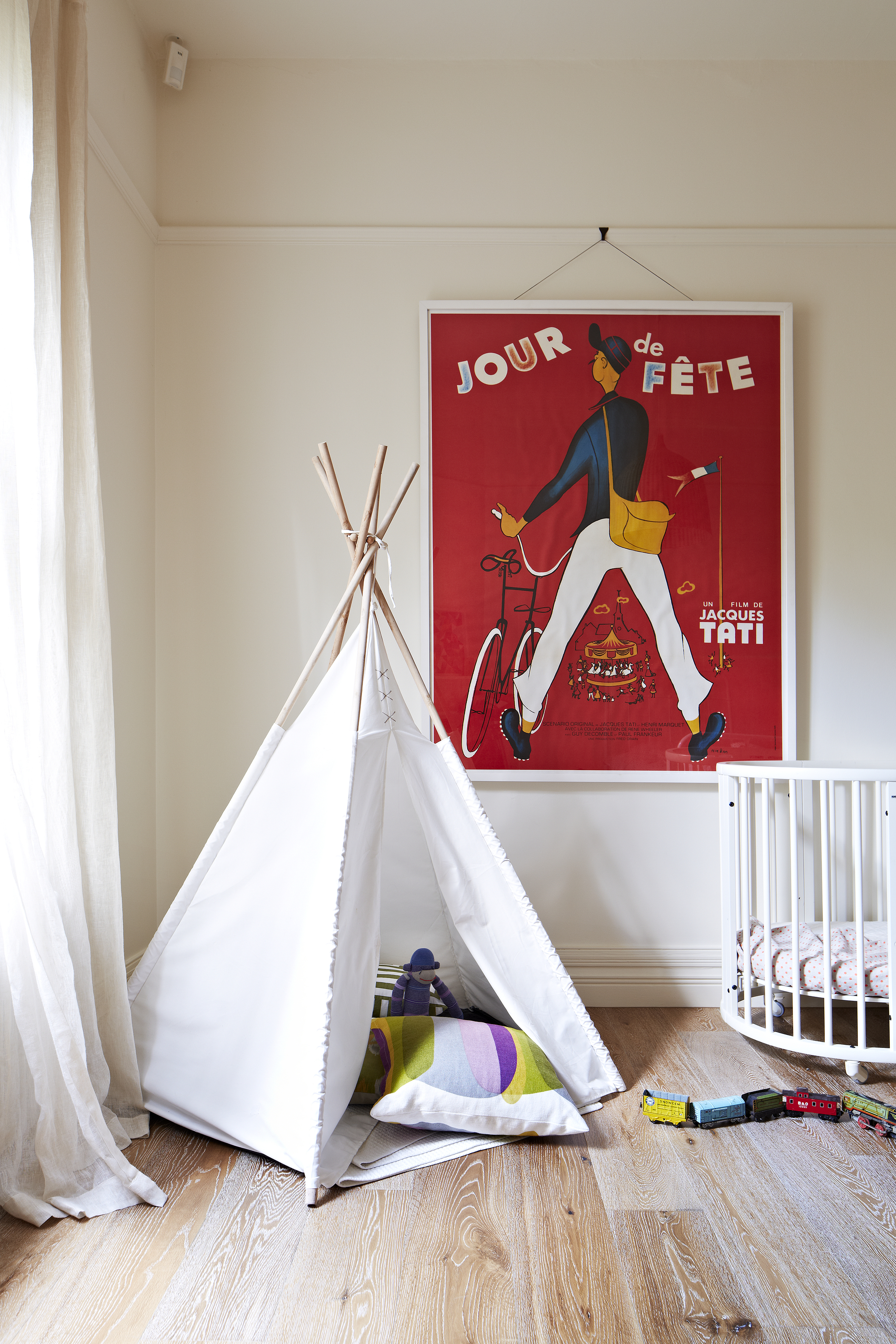
A whimsical tent is the perfect addition to any child's bedroom and adds playfulness to the space and is a great addition for playtime. Hang up fairy lights for nighttime reading and let your child snuggle up inside with some blankets. Look out for a design that comes with pockets so you can slot in your child's favorite books, making for a handy extra kids toy storage idea.
7. Add a ceiling canopy
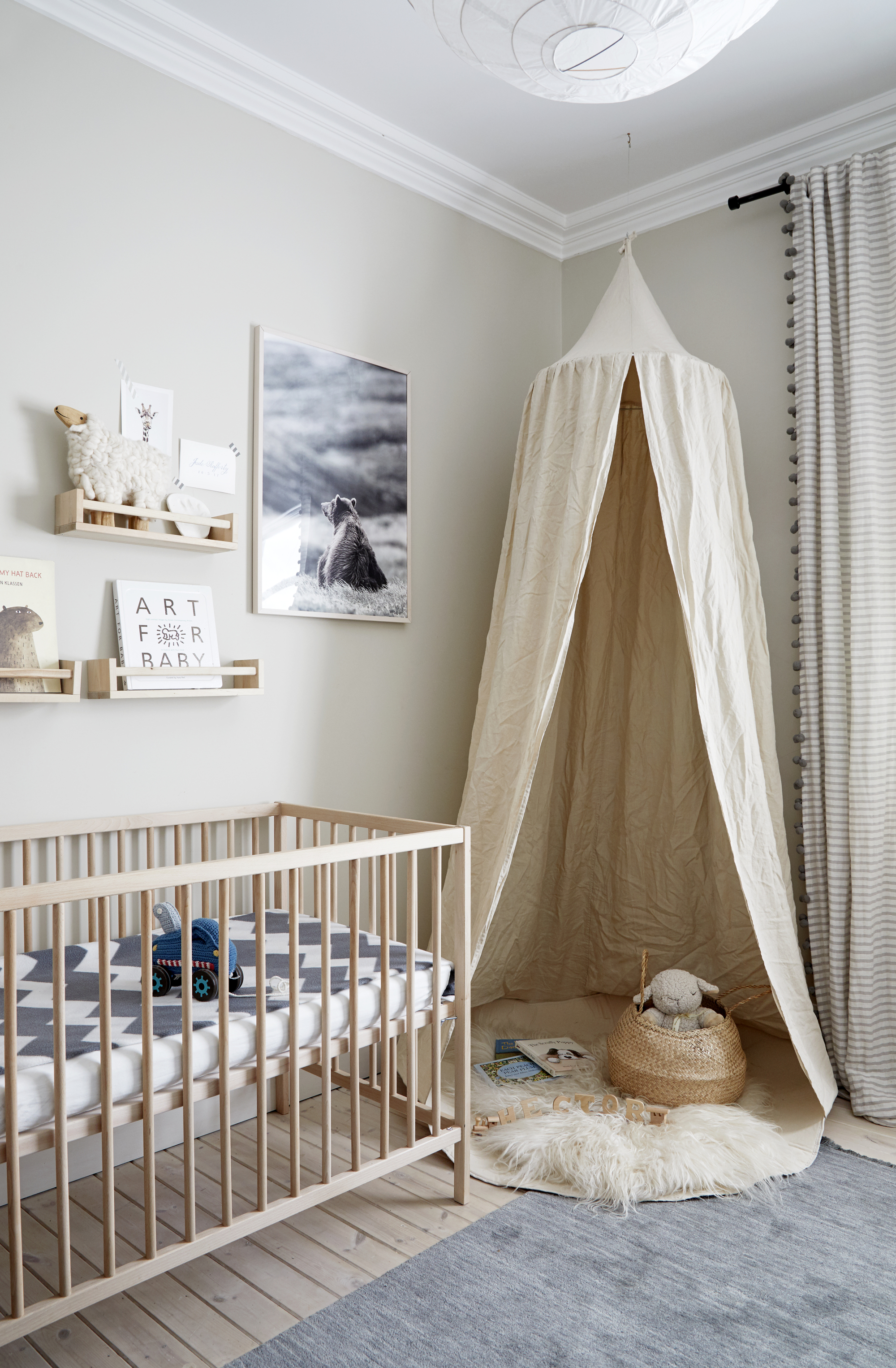
Accentuate your reading nook and emphasize a corner of your kid's bedroom by opting for a floor-to-ceiling canopy. This will give your nook a hidden away feel when the curtains are drawn, and are a soft and fun divider of the space while giving your child that exciting room-within-a-room feeling they love. Pick your canopy in a complementing color to the rest of the bedroom and hang bunting around the top for an extra playful touch.
8. Play with height
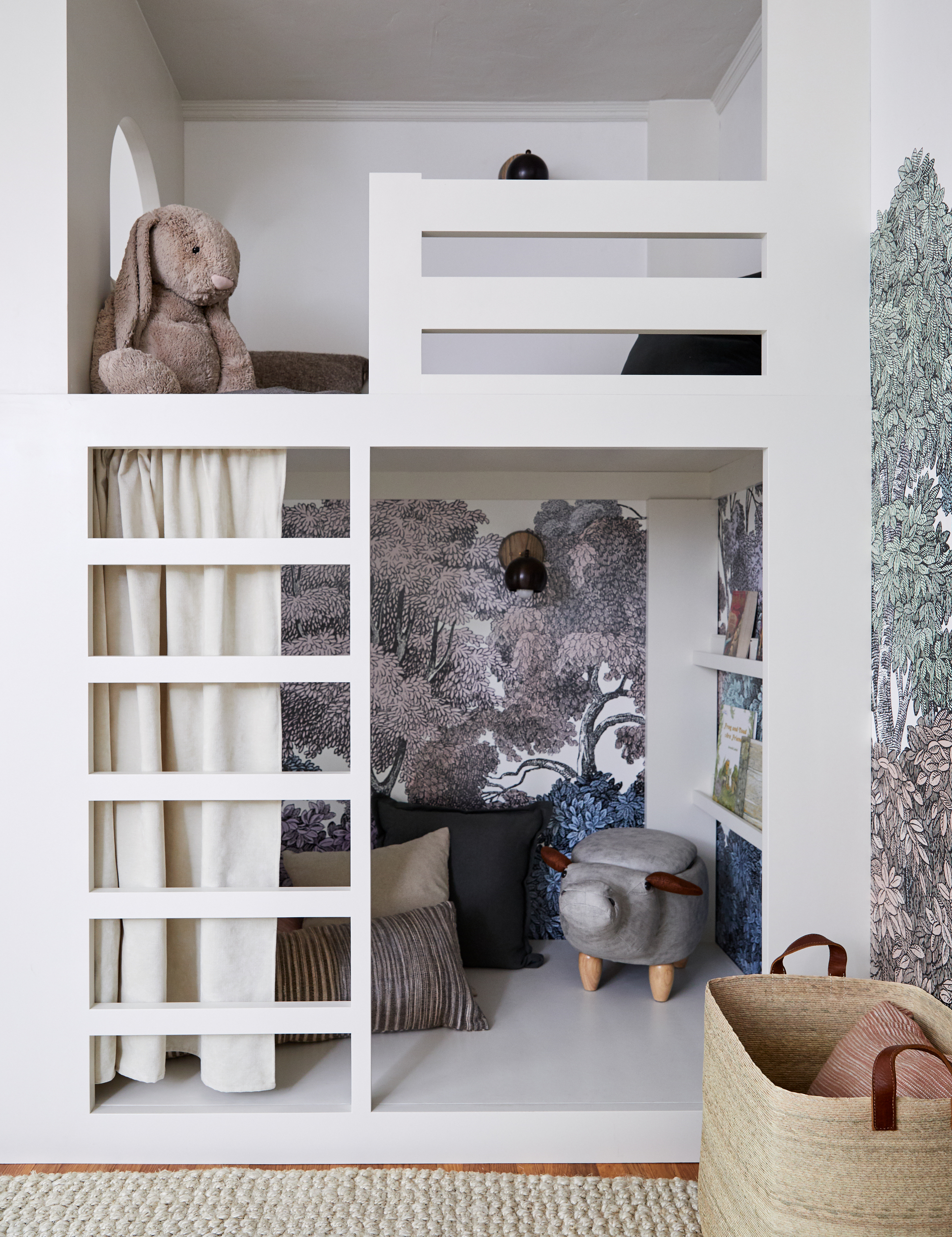
Kids love clambering up ladders, so make reading fun by encouraging them to climb to the top where the reward is that they get to tuck into a good book. This design is an imaginative space that is fun yet encourages rest all at once. 'The trick is balancing the fun with creating a space for calm and quiet and sleeping - important for parents alike,' says Lane McNab of the eponymous interior design house, Lane McNab Interiors.
'I love to create secret nooks for quiet imaginative play and reading like this one.' This design in a shared kids room also prioritizes storage as the extra levels give more space for books and toys. 'Every kid likes having a small space to hide or pretend and little nooks that double as book and toy storage are the best.'
9. Add a patterned wallpaper
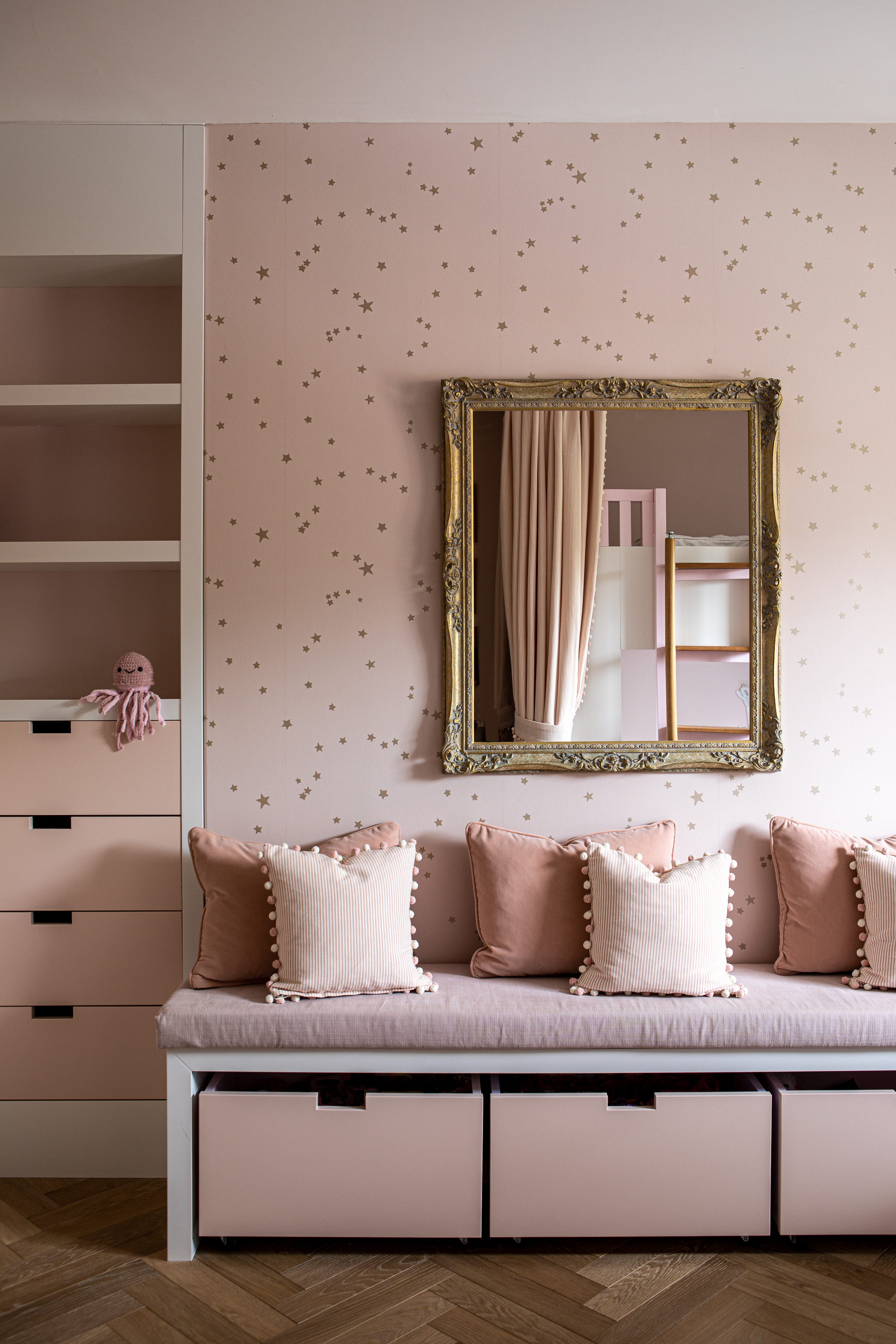
For an extra special spot that gives your child a real feeling of privacy, convert an unused cupboard under the stairs into a cool kids room and a private book nook. In this example from Maestri Studio, Dallas-based interior design studio, the under-the-stairs solution means you can tidy the space away and gives your child a bit of private time.
10. Make a reading corner out of a window seat
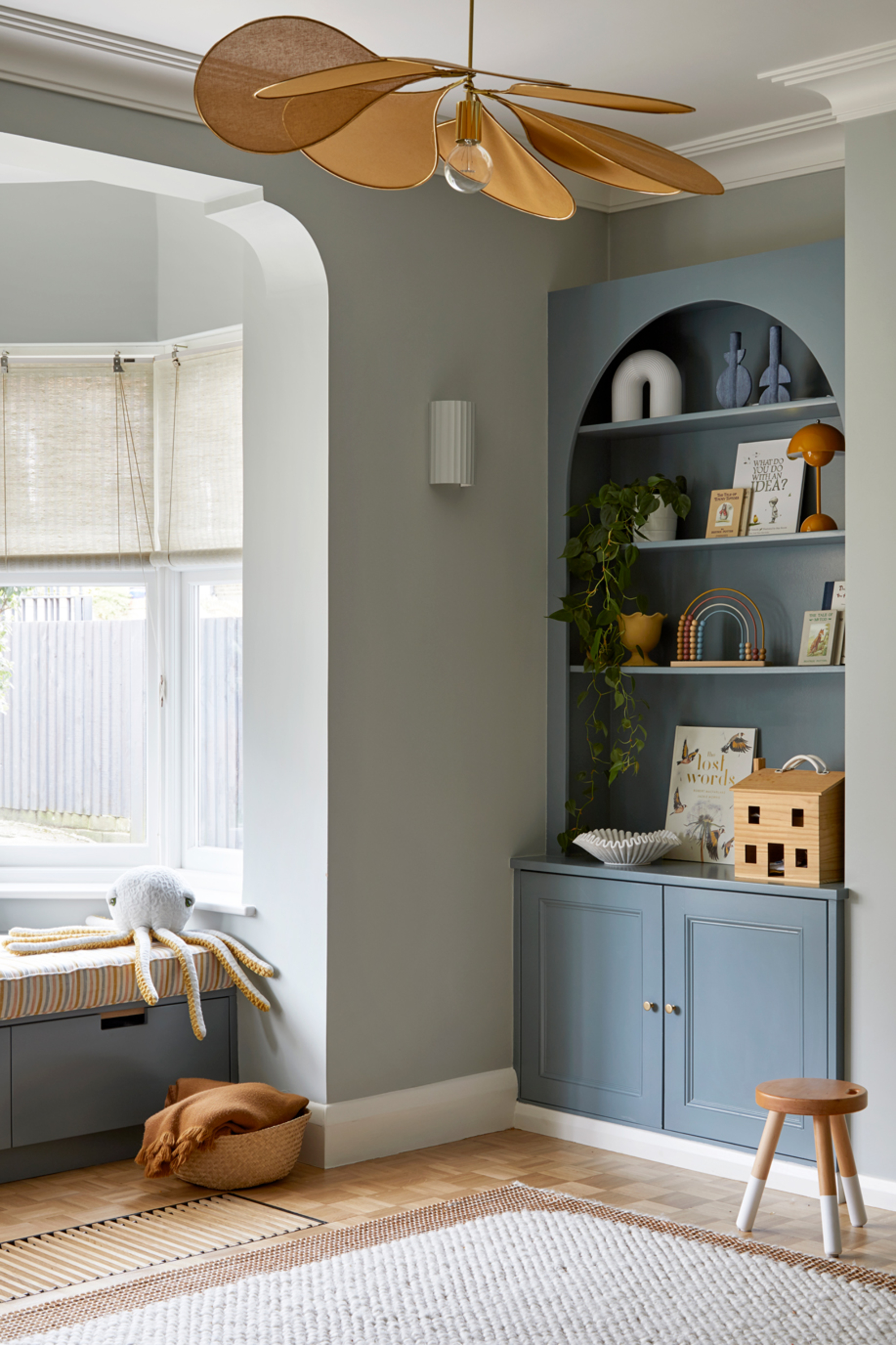
Playing with window seat ideas can be the best way to use all the space in an alcove or bay window, and can be a great space for storing of books and toys, while using it as a functioning window seat where your child can enjoy a good book while peering out of the window. It is also a bigger space where an adult can sit too and read along with their child.
'We love to incorporate a window seat wherever possible,' explains Celine Erlam of Indie and Co. 'We love to create little moments using joinery to encourage reading solo or with parents.'
11. Add a day bed
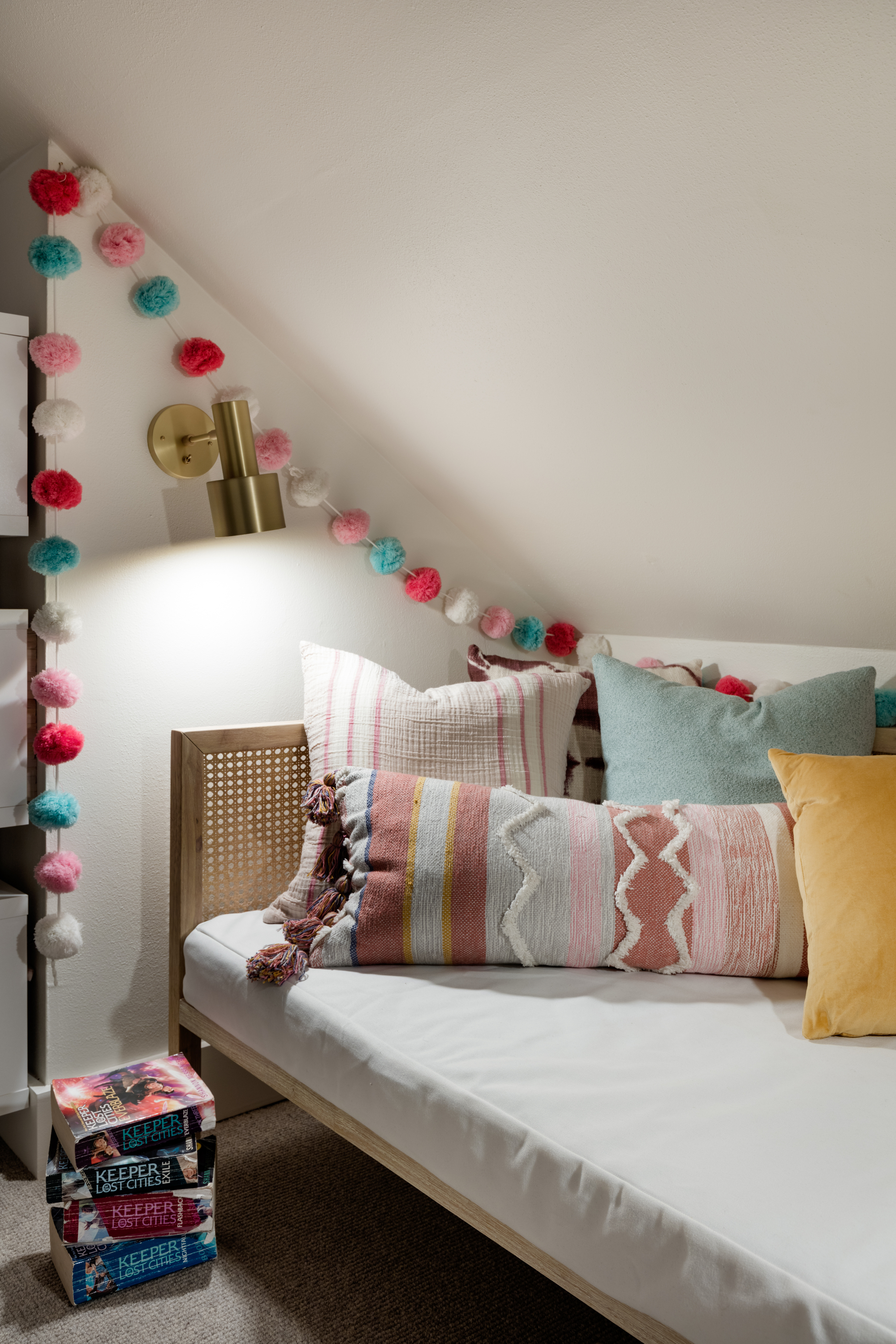
This daybed was added to the top floor of a Seattle home where the bedroom of two, twin tweens reside. While they share the bedroom, it was important to carve out another nook on the floor for some alone time. 'As avid readers ourselves, we added sconces to the walls for late night novels and kept the color palette consistent from the bedroom to this cozy corner,' explains Amy Vroom of The Residency Bureau. 'Knowing how quickly tastes change at that age, we didn’t want to invest heavily on decorative items that might soon be out of fashion in their eyes. By adding off-the-shelf pillows and colorful pom poms from a craft store, I was able to create some special touches without breaking the bank.
'The reading nook serves as extra sleeping quarters for slumber parties or visiting family members.
How do you make a simple reading corner?
If you're unable to completely overhaul your interiors, there are clever ways to create a simple reading corner with little effort required. Firstly find your corner and carefully consider its whereabouts in the room. You might want it close to a window for natural light, giving the space a focus where your child can dream and gaze out of the window, or you might want to create a more cozy space in a darker corner of the room. For a simple reading corner, it's all about soft furnishings - a soft rug or floor cushion establishes the corner as a zone. Finally, install bookshelves at a low height where your child can pick out their favorite read.

Former content editor at Livingetc.com, Oonagh is an expert at spotting the interior trends that are making waves in the design world. She has written a mix of everything from home tours to news, long-form features to design idea pieces, as well as having frequently been featured in the monthly print magazine. She is the go-to for design advice in the home. Previously, she worked on a London property title, producing long-read interiors features, style pages and conducting interviews with a range of famous faces from the UK interiors scene, from Kit Kemp to Robert Kime. In doing so, she has developed a keen interest in London's historical architecture and the city's distinct tastemakers paving the way in the world of interiors.